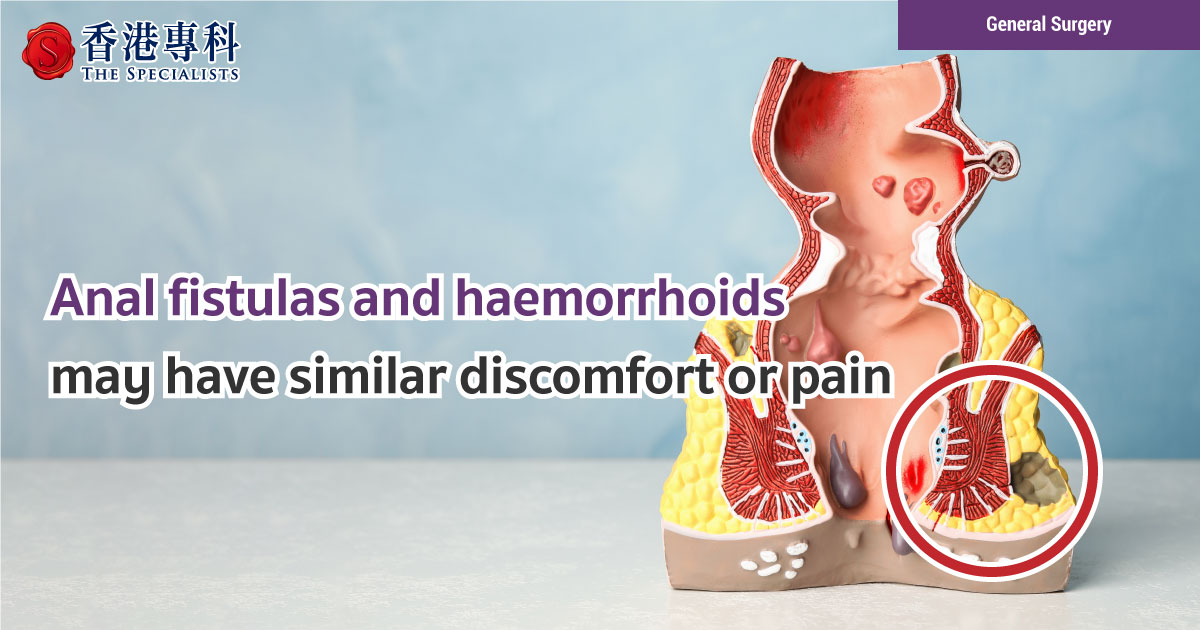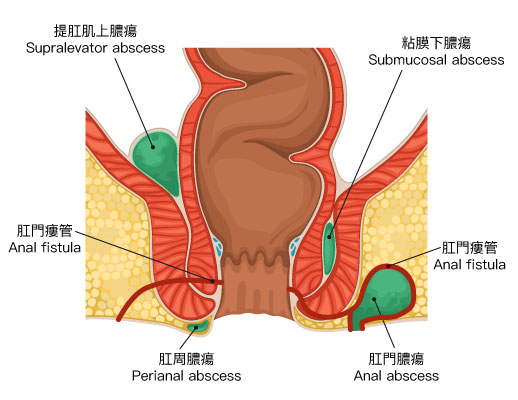Anal fistulas and haemorrhoids may have similar discomfort or pain

What is an anal abscess and fistula?
An anal abscess is an infected cavity filled with pus near the anus or rectum. In many cases, after an abscess has been drained, a passage may remain between the anal gland and the skin, resulting in a fistula.

What causes an anal fistula?
Most anal abscess and fistulas develop when a small anal gland becomes infected with bacteria. Occasionally, faecal material or foreign matter can clog an anal gland, causing a collection of abscess in the nearby tissue. When the abscess drains away, it can leave a small channel behind. Patients may have unpleasant symptoms in the anus.
Symptoms
Very often, the first sign of an anal fistula is an abscess with painful swelling, redness and tenderness near the anus. Another common symptom is discharge, which may include mucus, pus or faecal matter from the tunnel opening, and a foul odour.
Treatment of anal fistulas
The common type of surgery for anal fistulas is a fistulotomy. The doctor will inject a local anaesthetic around the abscess to allow the drainage to be as painless as possible. During the surgery, the doctor will find out all anal fistulas and will decide the treatment since the fistulotomy is usually suitable for low perianal fistulas, and fistulas that do not pass through much of the sphincter muscles.
Recurrences after fistulotomy
For some patients, the fistula will recur after the surgery. Risk factors may be related to the infection of anal glands, bacterial overgrowth, and the healing of wound from the skin instead of from the bottom.
What to expect in the postoperative stage?
Apart from attending the follow up consultation, the patient can have daily warm saltwater sitz bathing to the anal region. Besides, it is important to keep the anal area clean and dry. After a bowel movement, it would be better to wash the anal area with clean water and gently dry it afterwards.
*The above information is for reference only, please consult your doctor for detail.

 3405 8288
3405 8288
